Corporations Law Assignment - Ozzie E-Vehicles Pty Ltd Case Study
VerifiedAdded on 2022/09/18
|5
|1044
|81
Homework Assignment
AI Summary
This assignment solution addresses a problem question in Corporations Law, analyzing the legal issues surrounding pre-incorporation contracts and company resolutions. The scenario involves Michael Danvers, an inventor who established Ozzie E-Vehicles Pty Ltd. The assignment examines whether WA Lithium Refineries and AES Ltd. can sue Michael for breach of contract, considering contracts made before and after incorporation. It also assesses the validity of resolutions passed at a company meeting, focusing on notice requirements and accidental oversights. The solution employs the ILAC method (Issue, Law, Application, Conclusion) to provide a structured and detailed analysis, referencing relevant sections of the Corporations Act 2001 (Cth) and supporting case law, such as Aztech Science v Atlanta Aerospace and Commonwealth Bank of Australia v Australian Solar Information Pty Ltd. The conclusion finds that neither WA Lithium Refineries nor AES Ltd. can sue Michael, and that the resolutions passed by the company are valid, unless the court finds the lack of notice to be unjust.
1 out of 5
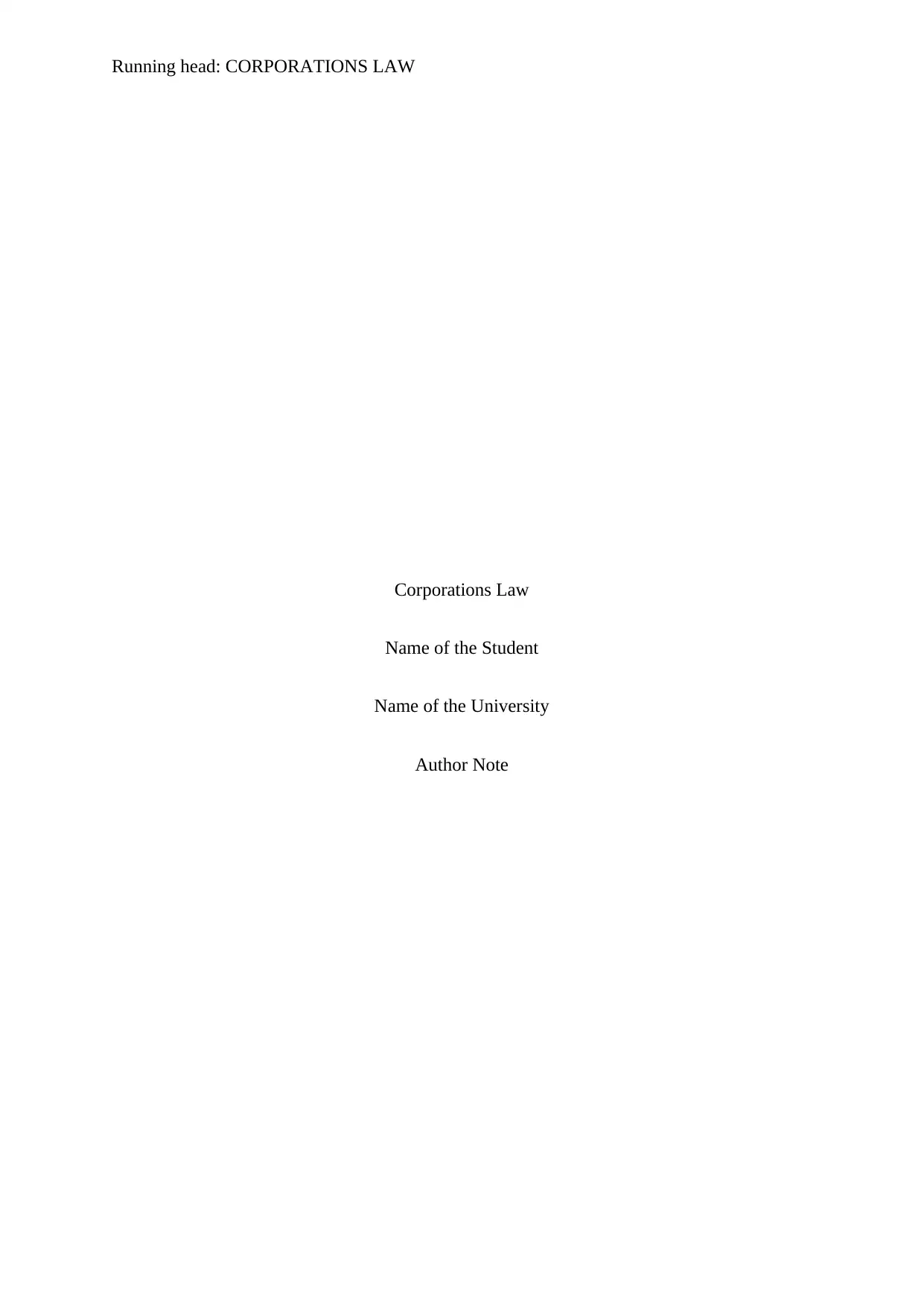
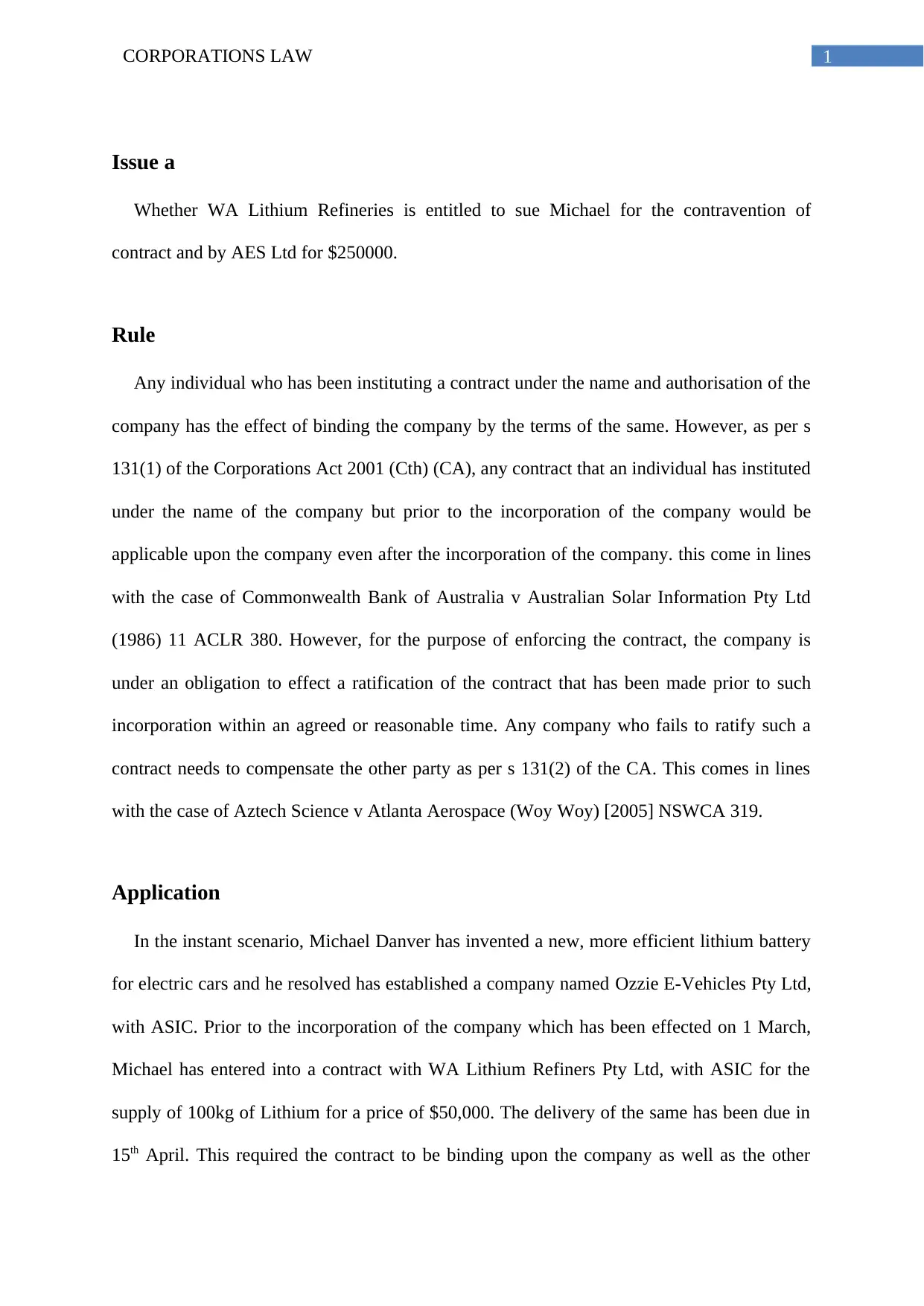
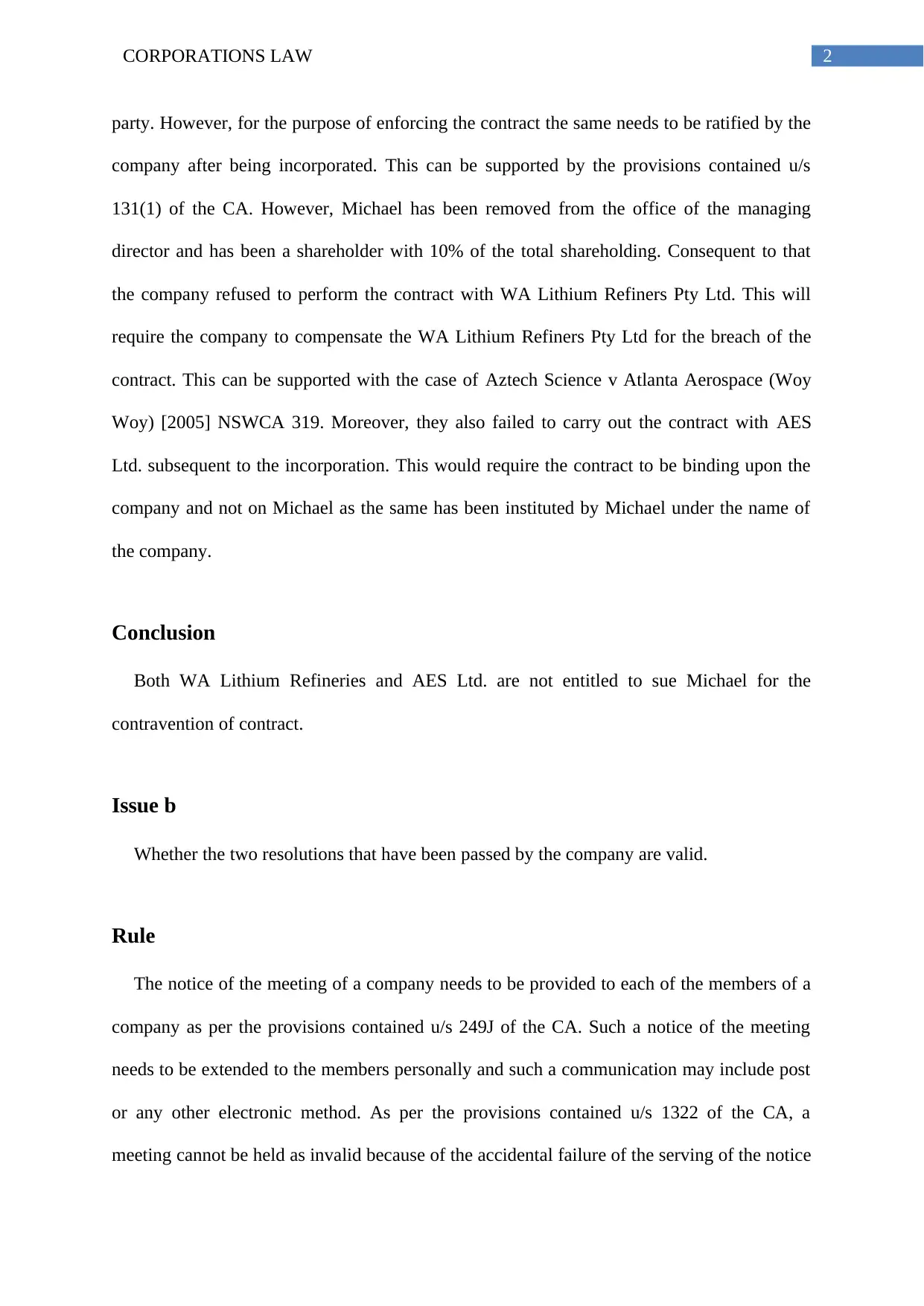

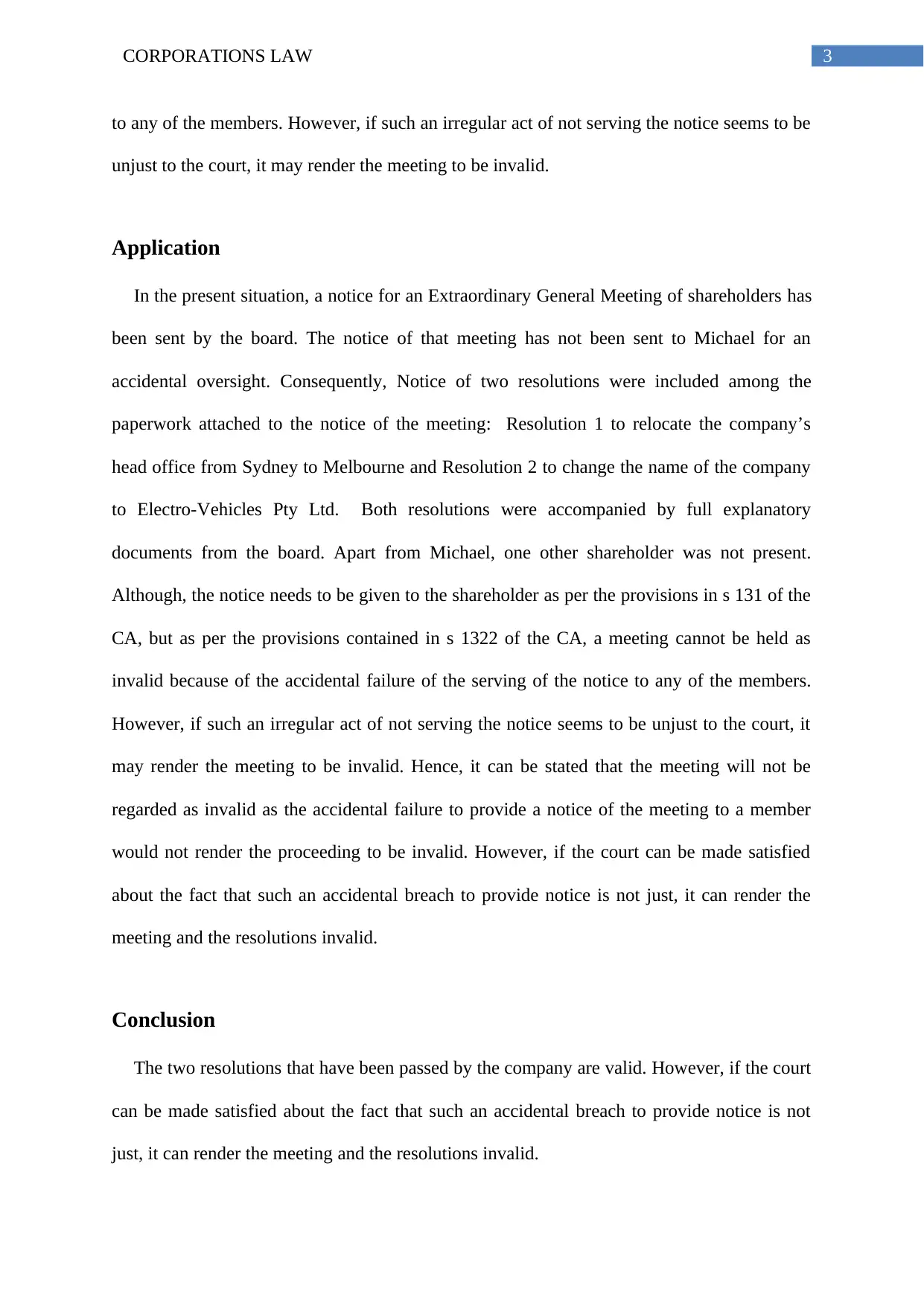
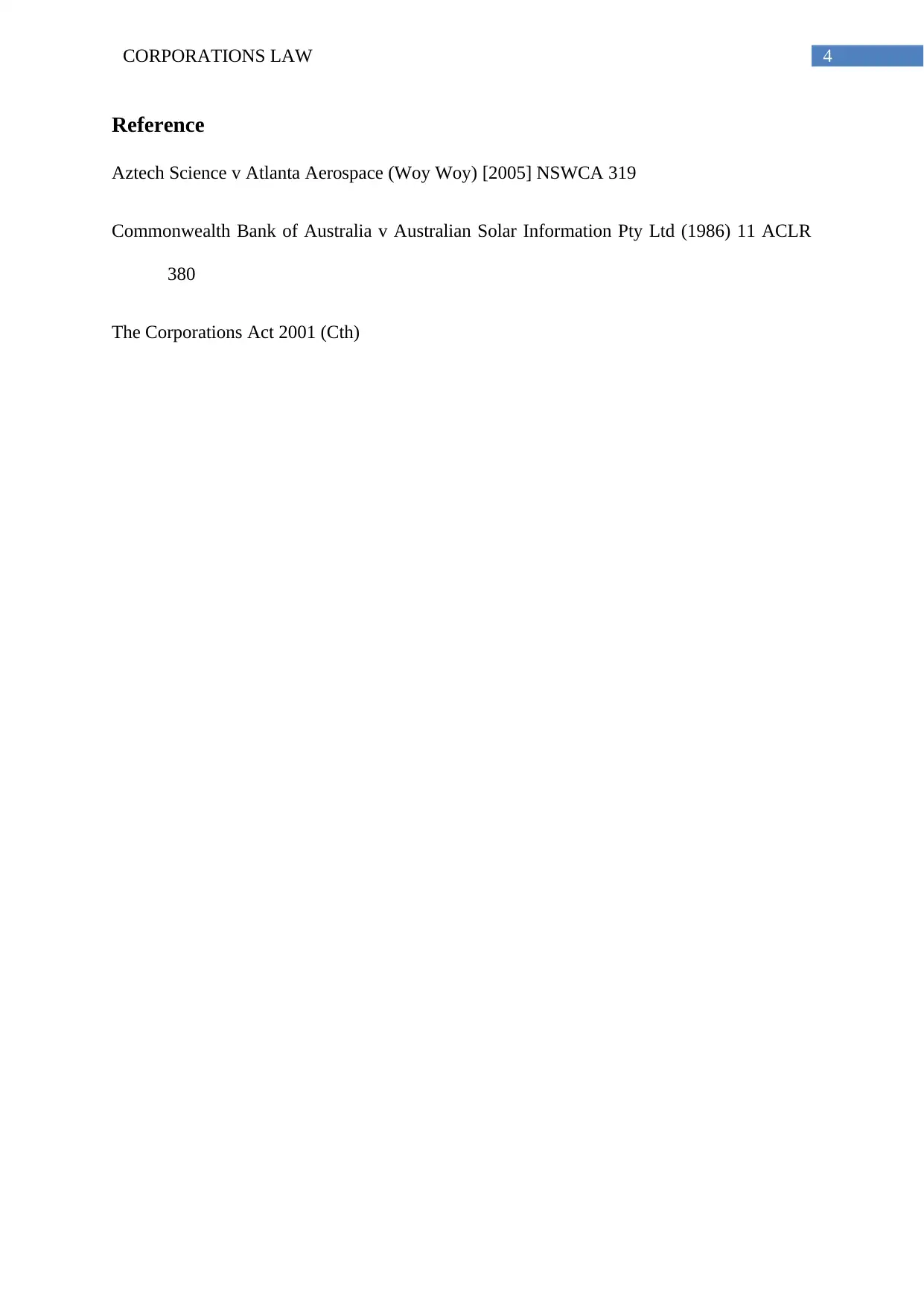






![[object Object]](/_next/static/media/star-bottom.7253800d.svg)